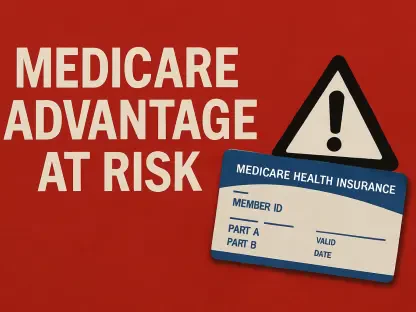The healthcare billing sector has long been burdened with complex administrative processes that pose significant challenges for health systems and providers. As the industry strives to streamline operations and manage escalating costs, the adoption of AI-powered solutions emerges as a game-changer. The strategic amalgamation by New Mountain Capital presents a sophisticated approach to overcoming these ongoing challenges through the formation of Smarter Technologies, an AI-driven revenue cycle management firm.
Overview of the Healthcare Billing Industry
In recent years, the healthcare billing industry has gained paramount importance, driven by the need to optimize financial outcomes and reduce inefficiencies in healthcare operations. The sector encompasses numerous segments, including coding, billing, claims management, and revenue cycle management, with technology playing a critical role in enhancing these processes. Prominent market players are increasingly focusing on integrating innovative technologies to meet regulatory compliances and consumer expectations within the healthcare billing landscape. The industry is primarily governed by regulations such as HIPAA, which mandate privacy and security measures for handling patients’ billing information.
Market Trends and Innovations
Current Trends Influencing Healthcare Billing
The healthcare billing industry is undergoing transformative changes, influenced by several key trends. Emerging technologies such as artificial intelligence and robotic process automation are reshaping traditional billing practices by automating tedious and error-prone tasks, thereby improving accuracy. Additionally, there’s a growing emphasis on consumer-driven healthcare, resulting in increased adoption of patient-centric billing practices. Market drivers include the need for cost reductions, improved organizational efficiencies, and the demand for faster claim processing times, which present new opportunities for industry growth.
Data-Driven Insights and Future Projections
Market data indicates robust growth prospects for the healthcare billing sector, with AI-powered solutions gaining traction. Future projections suggest an increase in the utilization of data-driven tools to forecast billing trends and optimize revenue cycles. Performance indicators highlight that organizations adopting AI technologies are poised to experience enhanced operational efficiencies and significant cost savings. The adoption of comprehensive analytics and trend analysis is expected to pave the way for a more streamlined and efficient billing environment in the future.
Challenges in Healthcare Billing
The healthcare billing industry faces a myriad of challenges that impede progress and efficiency. Technological hurdles, such as integration with existing legacy systems, can complicate the transition to more advanced solutions. Regulatory changes impose additional burdens on compliance, demanding significant resources to stay abreast of evolving standards. Market-driven challenges, like the pressure to reduce costs while maintaining service quality, further complicate billing practices. Possible strategies for overcoming these obstacles include enhancing cross-functional collaborations, developing staff training programs, and leveraging strategic partnerships to facilitate technological adoption across the board.
Regulatory Impacts on Healthcare Billing
Within the regulatory sphere, healthcare billing is influenced by several significant laws and standards that impact daily operations. Compliance with HIPAA ensures the secure handling of patient data, which is crucial in billing practices. Regulatory changes, such as revisions in coding standards or reimbursement policies, can affect revenue cycle management, demanding continuous adaptation by market players. Organizations must prioritize implementing robust compliance measures to maintain the integrity of billing systems and protect against violations. These regulatory frameworks remain integral in shaping healthcare billing practices and dictate the need for meticulous operational adjustments.
Future Directions in Healthcare Billing
Looking ahead, the healthcare billing landscape is expected to witness continued advancements as emerging technologies drive innovation. Developments in AI and machine learning are set to revolutionize billing workflows, offering improved accuracy and reduced administrative burdens. Consumer preferences are likely to influence billing transparency, necessitating adaptable solutions that reflect patient-centric billing practices. Future growth areas may include expanding capabilities in analytics and automation, fostering collaborations with tech firms, and focusing on global economic conditions that create new opportunities for market expansion. The nexus of innovation, regulatory compliance, and consumer demand will guide the evolution of healthcare billing into an efficient and effective domain.
Conclusion and Recommendations
The findings of this report underscore the transformative potential of AI-powered technologies in addressing the persistent challenges within healthcare billing. The formation of Smarter Technologies, backed by seasoned leadership and robust technological integration, prepares the industry for notable advancements in optimizing revenue cycle management. As organizations navigate evolving regulatory requirements and market demands, embracing AI-driven solutions offers a pathway to operational excellence. It is recommended that stakeholders focus on fostering innovation, investing in technology adoption, and cultivating strategic partnerships to harness the full potential of emerging trends in healthcare billing. The ongoing pursuit of efficiency and precision promises to reshape the landscape, presenting enticing opportunities for growth and investment in this rapidly evolving sector.









